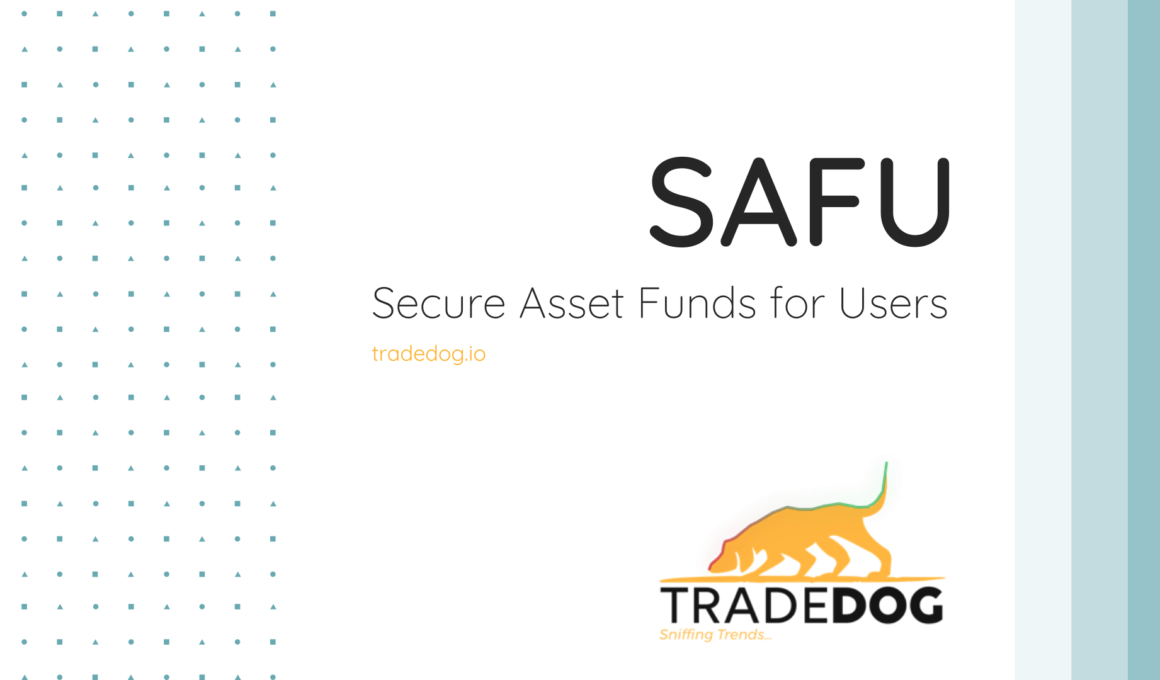Quick Links
Many times most of us have thought about the primal question of the safety of our crypto assets. Markets throughout the world have been struck with numerous hacking attempts which were either successful, faltered, or prevented. Perhaps the most infamous exchange hack can be attributed to Mt. Gox which lost more than 850,00 bitcoins representing over 6% of the total bitcoins in circulation. The repercussions of the hack had a destabilizing effect on the markets as the bitcoin value plunged by 20% following the siphoning.
A similar instance with Binance introduced an amusing jargon to the crypto urban dictionary; SAFU. For users who are not frequent on social media or follow crypto closely, let’s introduce you to SAFU which denotes whether or not your funds are safe.
What is this SAFU?
‘SAFU’ stands for “Secure Asset Fund for Users”. It is an emergency reserve meant to protect users’ invested assets which act as a guarantee against hacks and accidental losses. The funds stored in the ‘SAFU’ would be used to pay back the investors in any adverse event.
Interestingly, the term SAFU wasn’t intensionally invented to feed social media but originated by a typo from the crypto frontman and the CEO of Binance, Changpeng Zhao. Though typos are generally dealt with correct terms in their stead, SAFU was later adopted by the crypto community when CZ himself began promoting it in his tweets. Since it was a new buzzword in the crypto markets, investors took a sigh of relief that CZ himself was making sure that all the user funds were safe as per SAFU funds. He used to tweet the term SAFU during ongoing exchange maintenance or outages.
Ensure that your funds are SAFU
Constant worrying about your funds in financial markets is advisable, but when you enter the nascent crypto markets it gets increasingly important to secure your funds. A majority of investors and traders use third parties to ensure their funds’ safety. There are many ways to protect your crypto funds such as hardware wallets and cold storage, but they won’t match the level of promise that SAFU puts forth.
SAFU is an indemnification that compensates you in the event of stealing or losing your crypto assets when on an exchange. It is due to SAFU that the exchange pays its users in the full amount that gets stolen. Binance, the first to employ that, decided that it will allocate 10% of its entire trading fees to the fund. Stored in a completely separate cold wallet, the funds would then be used to circumvent the hazards if something terrible happens.
In an article, we suggested the best ways to protect your crypto assets that are on the line when you use them frequently. One can use third-party security providers in the form of Hot and cold wallets which prove to be of great value in storing and securing your crypto assets. Until exchanges adopt a crypto-insurance-based approach users would experience a huge urge to keep their assets offline using the help of these wallets and services.
Exchanges offering Crypto-Insurance
Exchanges such as BitGo Inc and Coincover have both employed a policy framework but they seem to fall short of the insane amount of cryptocurrencies trading in the ecosystem. BitGo offers a $100mn policy on its offline cold storage wallets that covers hacks, insider theft, and loss of private keys evidencing ownership. Coincover also proposes a $200mn policy covering losses due to security breaches, hacks, employee theft, or fraudulent transfers. Coincover though refused to provide insurance if the fault arises on the user’s end such as hacking of the user’s wallet, or the loss of their private keys.
Only $1bn of crypto insurance is available on circa $300bn of cryptocurrencies in circulation. Since these indemnification policies of the exchanges are covered by the trading fees they charge, it is the major reason why we see this difference in the policy premiums offered to the users. Crypto insurance limits often increase or decrease according to the volatility of the cryptocurrency. That means the user will only be indemnified for the underlying value of their possessed crypto assets at the time of a black swan event or simply put hacks and losses.
The need for Crypto Insurance
There are not many exchanges that practice SAFU to ensure their user’s funds except Binance. There is an increasing number of enthusiasts that are entering the crypto industry for a myriad of reasons such as investing, trading, and using the technology-driven by blockchain. In order to garner attention from a bigger audience such as institutional investors, the need for qualified custodians and insurance policies covering asset theft is getting more important.
A Coindesk report suggested that “The total coverage the industry is willing to provide to crypto custodians and exchanges tops at $6 billion.” Coinbase, a leading exchange, has a policy covering only $250 million worth of crypto assets that is limited to its US users. A major setback here is that due to higher risks, the cost of insurance is also higher as opposed to what we see in traditional stock markets. The cost for crypto insurance that covers hot & cold wallets varies with the offerer but it is generally limited to just 1-2% of the total insured sum. No exchange is thus able to cover entire funds of its users due to crypto’s high volatility and uncertainty.
If the crypto ecosystem could be introduced to these safety funds and anti-theft policies, it could lead to amassing a broader consumer base swiftly. The application of such policies would largely inhibit tax evasion, money laundering, and thefts that are widespread in the crypto markets. Another possible outcome of this would be the introduction of millions of retailers and brick & mortar businesses who could enter this tempting world of digital currencies. Investors will rest assured that they won’t lose their entire assets in an unforgiving event and it will also reimburse every stakeholder in a black swan event. In other words, if exchanges start this practice, it will immensely contribute to auditing financials, restructure better compliance, and regulate the market parameters with greater transparency and depth; something that the rest of the untapped community would appreciate.
The crypto ecosystem can only succeed in garnering the support of traditional venture funds and institutional investors when the investment space is coupled with great insurance policies.













